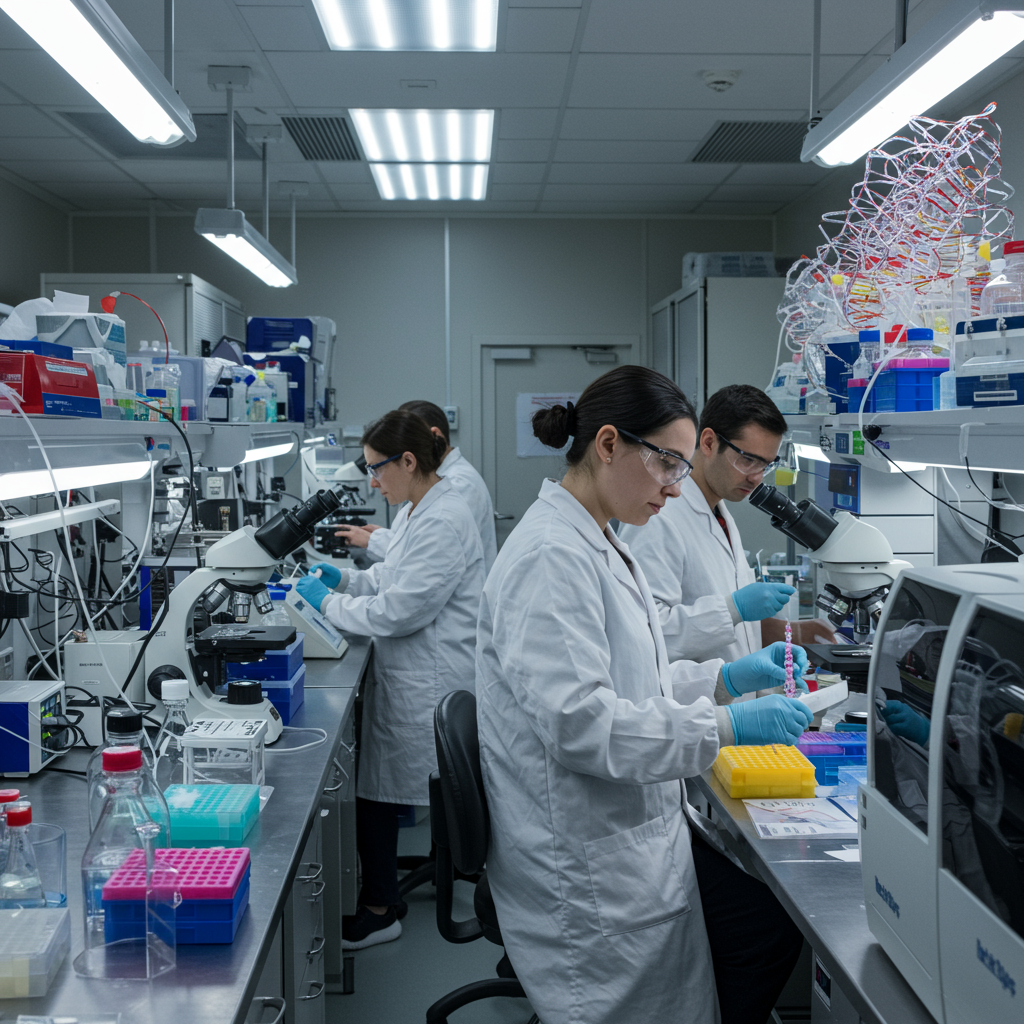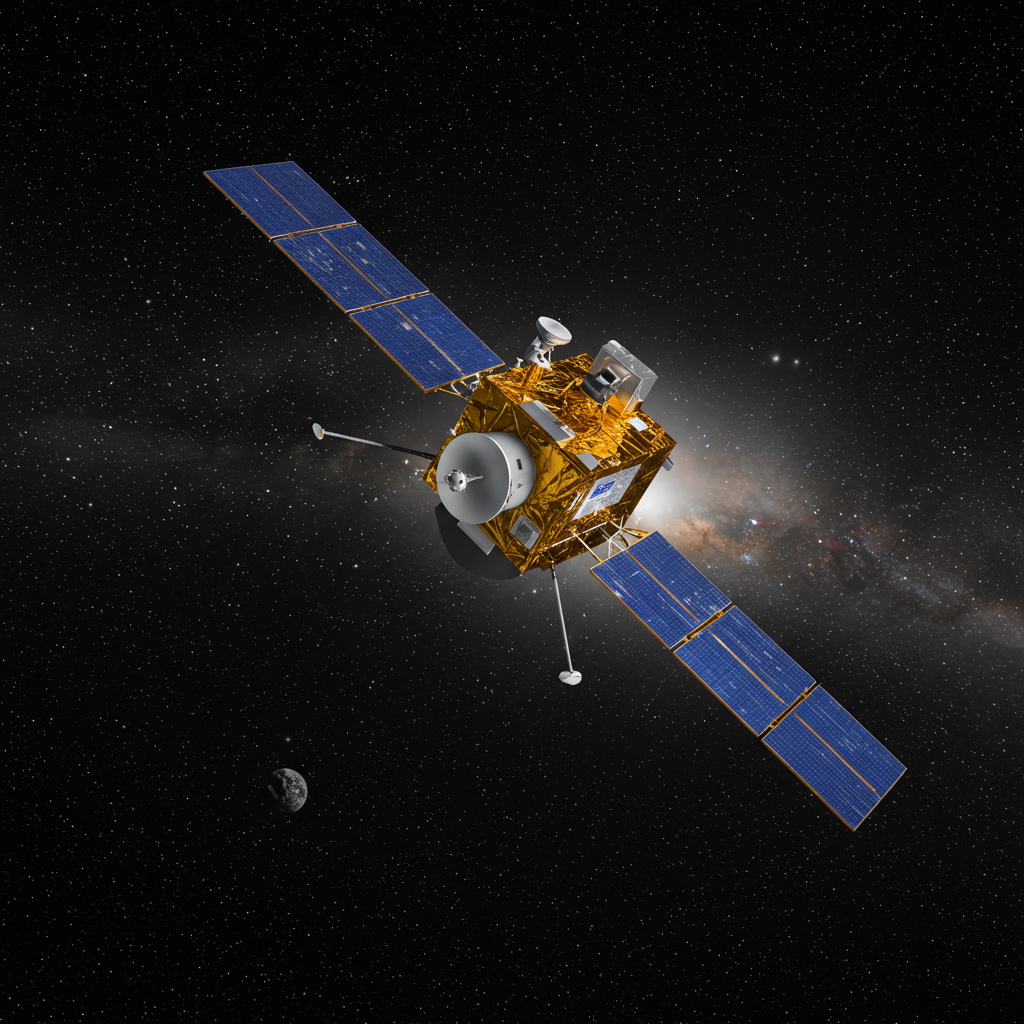Scientific breakthroughs are accelerating at a pace that challenges our understanding of life itself. In the United Kingdom, a pioneering team of scientists has embarked on an ambitious project to construct the first-ever synthetic human chromosome, piece by piece. This groundbreaking effort aims to delve into the fundamental blueprints of human biology, potentially unlocking new ways to combat genetic diseases and reshape the future of medicine.
This bold initiative is known as the “Synthetic Human Genome project.” The team, co-led by biology professor Jason Chin at Oxford University, is undertaking a five-year endeavor with a singular, complex goal: to synthesize a complete human chromosome from its basic chemical components. Their work is not driven by science fiction fantasies of creating life from scratch, but rather by a deep scientific curiosity to understand how our genetic machinery functions at its most fundamental level.
Professor Chin highlights the potential impact, stating that developing the capability to synthesize large genomes, including those for human cells, could profoundly transform our comprehension of genome biology and fundamentally alter the horizons of biotechnology and medicine. This suggests the project’s findings could have far-reaching implications beyond merely constructing the chromosome itself.
Securing crucial early support, the project received an initial $13.7 million in funding from the Wellcome Trust, a major medical non-profit organization. Wellcome Trust has a history of backing significant genetic research, having previously provided funding for the successful effort to map the entire human genome. This investment underscores the scientific community’s belief in the potential of synthesizing genetic material.
The Science of Building Life’s Blueprints
Synthesizing entire genomes is not a completely new concept in the scientific world. Over a decade ago, in 2010, scientists successfully created the complete genome of a simple bacterium from scratch. They even managed to insert this synthetic genetic material into an empty cell of another bacterium, effectively creating something entirely new that they cleverly nicknamed “Synthia.” Researchers have also achieved the synthesis of genomes for viruses and yeast cells in other laboratory settings.
However, tackling a human chromosome represents a significant leap in complexity. Human organisms are vastly more intricate and complex than bacteria, viruses, or yeast. Their genomes are exponentially larger and organized into multiple complex chromosomes, each containing millions of precisely arranged building blocks. Building even a single human chromosome demands an unprecedented level of precision and understanding of complex genetic architecture.
Why Synthesize a Chromosome?
The primary scientific motivation behind constructing a synthetic human chromosome is to gain a deeper understanding of human life’s essential building blocks. By synthesizing a chromosome and potentially introducing it into cells, scientists can explore how specific genetic structures influence cell behavior, development, and function in ways that traditional genetic studies might not allow. This could provide invaluable insights into the intricate mechanisms underlying genetic conditions and diseases.
The hope is that this project will uncover critical clues that could lead to the development of new therapies or even cures for debilitating genetic disorders. By building and testing synthetic chromosomes, researchers can potentially identify which genetic sequences are essential for healthy function and how alterations or errors in these sequences contribute to disease. This could pave the way for novel gene therapies or other biotechnological interventions.
Addressing the Elephant in the Lab: Ethical Considerations
Any project involving the synthesis or direct manipulation of human DNA inevitably raises profound ethical questions. The very phrase “building human DNA from the ground up” evokes powerful imagery and immediate concerns about researchers “playing God.” This sentiment is not new in genetic debates; discussions around genetic engineering, whether for de-extinction (like efforts to bring back the woolly mammoth or dire wolf) or human enhancement, often grapple with the idea of humans altering nature’s course or exceeding perceived natural limits.
Concerns frequently surface regarding the potential for creating “designer babies”—genetically modifying human embryos to select for specific non-therapeutic traits like intelligence or appearance, beyond simply curing disease. This possibility stirs fears of a future where genetic advantages exacerbate social inequalities, creating a divide between those who can afford genetic enhancements and those who cannot. The historical shadow of eugenics, the now-discredited movement advocating for selective breeding to “improve” the human population, also looms large in these discussions, reminding us of the potential for genetic technologies to be misused for discriminatory purposes.
Building Ethics into the Research
Recognizing the significant ethical minefield surrounding their work, the scientists behind the Synthetic Human Genome project have proactively built a substantial social research component into their five-year plan. They understand that scientific progress cannot occur in a vacuum, isolated from its societal implications.
According to project statements, the team is committed to undertaking a “transdisciplinary and transcultural investigation.” This means researchers from various fields – including ethics, sociology, economics, and policy – will work alongside the biologists. They aim to deeply explore the socio-ethical, economic, and policy implications that arise from the capability to synthesize human genomes. This integrated approach is intended to foster public dialogue, anticipate challenges, and help shape responsible guidelines for this emerging technology.
This commitment to ethical investigation is a crucial aspect of the project. It signals an awareness that advancing genetic synthesis technology requires simultaneous consideration of its potential impact on individuals, societies, and global policy. By engaging with these complex questions early and throughout the research process, the project aims to navigate the ethical landscape responsibly.
The Future Horizons of Synthetic Biology
Successfully constructing a complete synthetic human chromosome within the next five years would undeniably mark a monumental step forward in biological progress. It would represent an unparalleled demonstration of our capacity to understand and replicate the fundamental units of human heredity.
However, this scientific achievement will certainly bring complex and profound questions to the forefront. Beyond the immediate medical potential, the ability to synthesize human genetic material forces us to confront philosophical considerations. As the original article posed, if humanity gains the ability to construct the very blueprints of life, what does that imply about the meaning of life itself?
These debates echo broader discussions surrounding human enhancement technologies. As explored in various reports, advancements in areas like genetic engineering (including powerful tools like CRISPR), brain-computer interfaces, and synthetic blood substitutes raise fundamental questions about what it means to be human, the pursuit of perfection, and the potential for technology to alter our physical and cognitive limits. While the synthetic chromosome project is focused on foundational understanding for therapeutic potential, it contributes to this larger conversation about humanity’s evolving relationship with biology and technology.
The journey towards synthesizing a human chromosome is fraught with technical challenges and ethical dilemmas. Yet, the potential rewards – a deeper understanding of life and new avenues for treating devastating diseases – drive this frontier research forward. The world will be watching closely to see how this ambitious project unfolds, both in the laboratory and in the broader societal dialogue it necessitates.
Frequently Asked Questions
What is the Synthetic Human Genome project and what is its goal?
The Synthetic Human Genome project is a new initiative by UK scientists aiming to build the first complete synthetic human chromosome from chemical components over five years. Its primary goal is to gain a deeper understanding of the fundamental building blocks of human life. Researchers hope this process will reveal new insights into how our genes work, which could help identify clues for curing genetic diseases and debilitating conditions.
Why is synthesizing a human chromosome ethically controversial?
Synthesizing human DNA raises significant ethical concerns often framed as “playing God” due to its manipulation of the blueprints of life. Specific worries include the potential for misuse, such as creating “designer babies” by selecting non-therapeutic traits, and the historical link to eugenics. Critics fear such technology could exacerbate social inequality or fundamentally alter what it means to be human. The project team acknowledges these concerns and includes an ethical investigation component.
What are the potential benefits and risks of creating synthetic human chromosomes?
Potential benefits include a vastly improved understanding of genome biology, which could lead to new treatments and cures for a wide range of genetic diseases and conditions. It could transform biotechnology and medicine. Risks involve the ethical implications discussed, such as potential misuse for non-therapeutic enhancement, exacerbating social inequalities, and grappling with philosophical questions about the nature of life. There are also technical risks associated with introducing synthetic components into biological systems.




